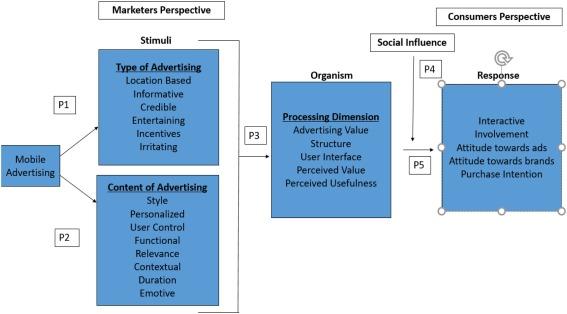Top Student perspectives on Online Learning: Real experiences, Insights, and Lessons
The rise of online learning has transformed the educational landscape, making it more accessible, flexible, and adaptive than ever before. But how do students really feel about virtual classrooms? Are online courses truly effective, and what strategies do successful online learners use to thrive? This comprehensive article dives deep into real student perspectives on online learning, sharing first-hand experiences, valuable insights, practical lessons, and actionable tips to help current and future students excel in the digital classroom.
Why Understanding Student Perspectives on Online Learning Matters
As education shifts increasingly online, understanding authentic student experiences becomes crucial for educators, administrators, and students themselves. Student perspectives shed light on what works, what doesn’t, and how to bridge the gap between traditional and virtual learning environments. By examining real stories, practical tips, and honest feedback, readers can gain a well-rounded view of online education’s true strengths and challenges.
Benefits of Online Learning: What Students Appreciate
- Flexibility and Convenience: Students can learn from anywhere and tailor their study times to fit their schedules.
- self-Paced Learning: Many online courses allow for asynchronous study, enabling learners to progress at their own speed.
- wide Selection of Programs: Access to diverse courses, certifications, and degrees irrespective of geographical location.
- Skill Advancement: Online learning nurtures time-management, self-discipline, and digital competencies.
“The best part of online learning was being able to balance my studies with my part-time job. I never missed a lecture, since everything was recorded and easily accessible.” – lisa, College Sophomore
Common Challenges: What Students Struggle With
Despite its undeniable advantages, online learning comes with unique hurdles. By exploring honest student feedback, we can identify what to improve:
- Lack of Face-to-Face Interaction: Many students miss in-person exchanges with instructors and peers, which sometimes hampers networking and community.
- Distractions at Home: Creating a study-pleasant environment requires discipline and support.
- Technical Issues: Connectivity problems, outdated devices, and lack of technical support can disrupt learning.
- Self-Motivation: Without set schedules, staying motivated and organized is a consistent challenge.
“It’s hard not being in a physical classroom—sometimes I felt isolated. I had to make a conscious effort to reach out to classmates and keep up with assignments.” – Raj, online MBA Student
First-Hand Experiences: Student Case Studies
Amanda’s Story: Juggling Family Life and a Degree
As a mother of two, Amanda enrolled in a remote degree program during the pandemic. She enjoyed the flexibility online learning provided, allowing her to attend to her children while advancing her education. However,she notes that effective time management and a supportive network where critical to her success.
Michael’s Journey: Overcoming Technical Barriers
Michael, residing in a rural area, initially struggled with poor internet connectivity. He worked with local organizations to get affordable upgrades and used offline materials whenever possible.His experience highlights the importance of accessible technology and institutional support.
Sophia’s Realization: Building a Digital study Community
Despite missing face-to-face interactions, Sophia took the initiative to form an online study group using video calls and chat platforms. This not only improved her grades but also created a sense of belonging and accountability.
Key Insights from Student perspectives
- Engagement is Essential: Interactive content, live sessions, and group work make online learning more dynamic and effective.
- Instructor Presence Matters: Frequent communication and timely feedback from instructors enhance the online learning experience.
- Peer Support: Collaboration among students is crucial to reduce feelings of isolation and boost knowledge sharing.
- Wellness and Balance: Successful students prioritize their mental health and build routines that include breaks and physical activities.
Practical Tips for Maximizing Online Learning Success
- Set a structured Schedule: Plan your week in advance and allocate dedicated time for classes, assignments, and breaks.
- Create a Distraction-Free Study Space: Designate an area specifically for studying with needed resources and minimal disruptions.
- Actively Participate: join discussions, forums, and group projects to stay engaged and connected.
- seek Feedback and Support: Don’t hesitate to contact instructors or tutors if you need clarification or help.
- Leverage Technology: Use productivity apps, calendar reminders, and digital note-taking tools to stay organized.
- Practice self-Care: Incorporate physical activity, healthy meals, and mindfulness techniques to maintain a balanced routine.
How Online Learning Shapes the Future of Education
The feedback and stories shared by students indicate a powerful shift in how knowledge is acquired and shared. Online learning is poised to become an even more integral part of the educational experience, with emerging technologies such as AI, virtual reality, and adaptive learning platforms making classes more personalized and immersive. By embracing student-centered approaches and continually adapting based on honest perspectives, online education can overcome its current limitations and unlock greater academic potential for learners worldwide.
Conclusion: Embracing Student Perspectives for Stronger Online Learning
Real-world student experiences provide a vital roadmap for educators, institutions, and learners aiming to improve and excel in online education. From the flexibility and diverse opportunities offered, to the undeniable challenges and the practical tips for overcoming them, student insights form the backbone of a robust and effective online learning experience. As digital education continues to evolve, prioritizing and addressing these student perspectives will help create more engaging, inclusive, and successful online classrooms for all.
Have a story to share? Leave your own online learning experience in the comments and join the conversation on the future of education!

